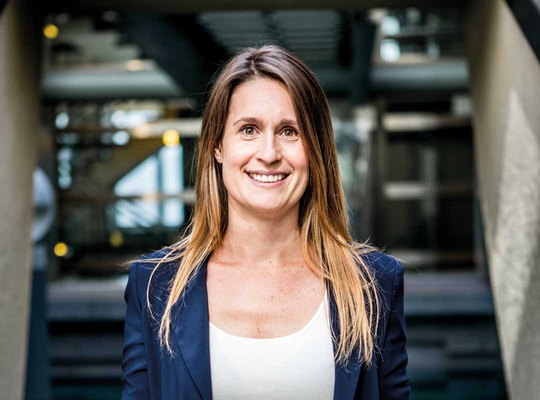You are here
Maaike De Vreese: “Maximum support for European newcomers to enter integration courses”

In addition to more than 30,000 temporarily displaced Ukrainians, nearly another 42,000 adult newcomers were also eligible for Civic integration Flanders has a policy for civic integration. This is a guided and targeted form of social integration for people of foreign origin. The intention is that the newcomers are provided with a valuable place in society by including them instead of excluding them. Civic integration, which includes language lessons and civic integration courses, was brought about by the participation of the N-VA in the Flemish Government since 2004 and the appointment of a Minister for Civic Integration. civic integration in Flanders in 2022. It is striking that there are many Romanian, Bulgarian, Polish and Spanish newcomers. That group alone accounts for almost 40% of all newcomers entitled to integration. “We must ensure that such newcomers follow a civic integration programme. That way, we can make sure they integrate as well as possible and, in particular, learn our language. Therefore, I am calling on Minister Somers (Open Vld party) to put maximum effort into targeted recruitment campaigns and mediators,” says Flemish MP Maaike De Vreese.
Mediators
The Flemish government currently uses recruitment campaigns to motivate voluntarily integrating newcomers to follow a programme. The Flemish Government has allocated EUR 500,000 for the period 2022-2023. Last year, the recruitment campaign was mainly aimed at Ukrainians; this year, the recruitment strategy must be broadened to include all newcomers. The analysis of the communication strategy showed that newcomers know about the integration programme mainly through word-of-mouth recommendations. That is why Minister Somers wants to get newcomers who have completed an integration programme to act as ambassadors to convince others to follow such a programme.
Appeal to role models
The N-VA wants to go one step further. “The challenge in 2023, alongside the full roll-out of the new integration policy, is to attract as many EU newcomers as possible to integration courses. Newcomers who have completed such courses can certainly be ambassadors, but we must broaden this. This is simply because a large number of newcomers belong to a particular community, such as the Polish Catholic community or the Romanian Orthodox community. Therefore, we must appeal to role models in those communities to attract attention to the integration programme. If these mediators speak openly, they can reach and convince a lot of people,” says De Vreese.
Integration programme in the country of origin
EU migrant workers were – next to the Ukrainians – again the largest group of new arrivals. In 2022, they accounted for a fifth more than the year before. De Vreese has already made a plea in parliament several times to make a (part of the) integration programme possible in the country of origin. “Last year, four-fifths of the registered newcomers did not know any Dutch at all. We must offer a programme in the home country where possible, for example, for labour migrants or family reunification. That way, they can learn our language and the rights and obligations of our society in their country of origin in advance. This allows them to make a flying start when they arrive in Flanders,” Maaike De Vreese concludes.

